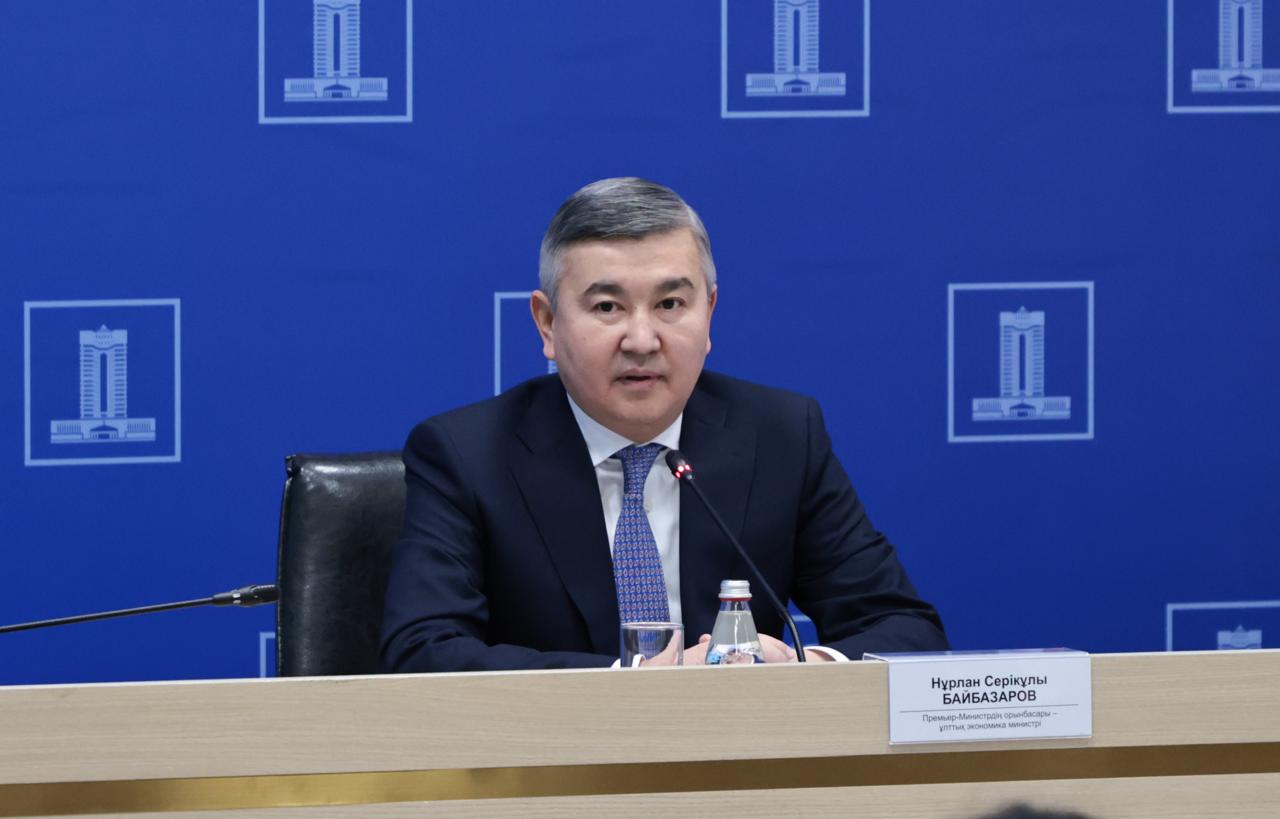ASTANA — Following recent fluctuations caused by external economic pressures, Kazakhstan’s government and the National Bank have outlined measures to stabilize the national currency during the Dec.2 press briefing.

Deputy Prime Minister and Minister of National Economy Nurlan Baibazarov at the press briefing on Dec.2. Photo credit: Ukimet telegram channel
Deputy Prime Minister and Minister of National Economy Nurlan Baibazarov noted that the tenge’s weakening stems from three key factors: the global strengthening of the U.S. dollar, declining global oil prices and the depreciation of the Russian ruble. The latter has had a direct impact due to Russia’s role as a major trading partner.
Economic diversification and investments
The government has initiated 17 large-scale petrochemicals, engineering, metallurgy and agriculture projects to stabilize the economy and maintain growth. Public and private investments have exceeded 2 trillion tenge (US$3.8 billion) this year, with a long-term infrastructure plan valued at 40 trillion tenge (US$76 billion) set to run until 2029.
Baibazarov emphasized the government’s focus on improving business conditions and attracting foreign investment.
“We expect that the inflow of foreign currency will play a stabilizing role, contributing to sustained economic growth,” said Baibazarov.
Ensuring price stability
Baibazarov noted the government’s commitment to mitigating inflation and stabilizing consumer prices. Inflation rates have declined significantly over the past year, dropping from 20.3% in 2023 to 8.4% in the first 11 months of 2024. Efforts to curb inflation include increasing domestic market supplies, regulating tariffs and holding agricultural fairs to stabilize food prices during the winter and early spring.
According to the ministry, Kazakhstan has stockpiled over 826,000 tons of essential food items, ensuring sufficient reserves for the coming months. Vegetables from stabilization stocks will be released by February 2025 to counter seasonal price hikes.
Strengthening social protections: Pensions, TSA, scholarships and salaries
Pensions and social benefits will be indexed to inflation starting January 2025 to address social concerns. The benefits include a 6.5% increase in basic pensions and benefits and an 8.5% hike in solidarity pensions.
Baibazarov added that the government has allocated over 6 trillion tenge (US$11.4 billion) in the 2025 budget for social benefits, representing a 12.5% increase compared to 2024.
“Families with children remain a critical focus, with nearly 2 million families covered by state benefits. Starting next year, these benefits will also see a 6.5% increase,” he said.
Furthermore, support for low-income families will continue through targeted social assistance (TSA) programs, enhanced by a digital family card initiative. According to Baibazarov, as of Nov.1 this year, 76,000 families, or 403,000 people, received TSA.
Students and academic professionals are also set to benefit from increased financial support. As of September, scholarships for undergraduate and postgraduate students have increased by 20% and 15%, respectively. Salaries for scientific organization employees were raised by 18% this year and will see another 17% increase in January 2025.
